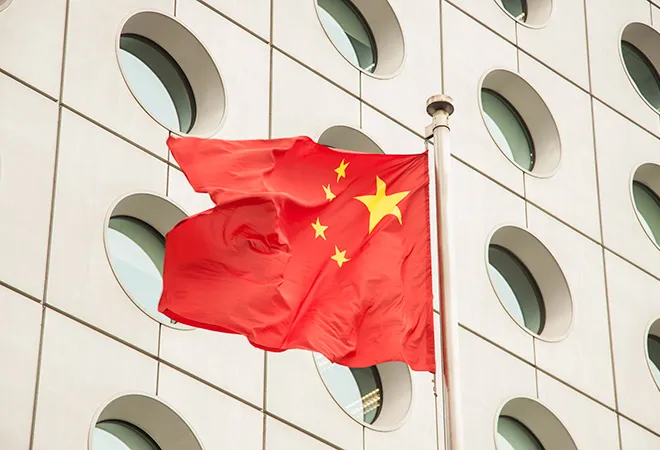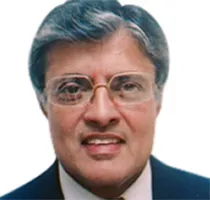-
CENTRES
Progammes & Centres
Location
The months of March and April 2019 marked two important anniversaries. The 30th anniversary of the passing away of a former General Secretary of the Communist Party of China, Hu Yaobang and the 40th year of the Sino-Vietnam War of 1979.
 This is the 80th article in the series The China Chronicles.
Read all the articles here.
This is the 80th article in the series The China Chronicles.
Read all the articles here.
The months of March and April 2019 marked two important anniversaries, which passed unnoticed. Both related to the People’s Republic of China (PRC) and were very significant in modern Chinese history. However, the PRC chose to ignore both, as they were a great embarrassment to the Communist Party of China (CPC).
April 15 marked the 30th Anniversary of the passing away of a former General Secretary of the CPC, Hu Yaobang. He was an icon for political reforms within the Party and for a more liberal attitude. His popularity, particularly among the youth and students soared during his tenure as General Secretary. There was widespread disenchantment and anger when his own mentor, the great reformer Deng Xiaoping sidelined him in 1987. His death in April 1989 sparked the pro-democracy movement, which led to the tragic military crackdown at Tiananmen on June 4.
Strangely, his birth centenary in 2015 had limited official recognition with some Party leaders paying him tributes. President Xi Jinping spoke highly of Hu and his contributions to the Party and the country. The death anniversary, however, was a taboo for the Chinese authorities. The connection between Hu’s death and the Tiananmen tragedy made the anniversary a little too sensitive for commemoration. There was, of course, a non-official event attended by about 300 people in a memorial in Gongqingchang in Jiangxi province where Hu had been laid to rest. The Party did not create any obstacle to this non-official event. It is significant that Hu did not get the honor of a burial at the Babaoshan Cemetry in Beijing as is normal for the top leaders.
Hu Yaobang was a loyal and dedicated CPC worker who rose in the ranks due to sheer competence and hard work. He was one of the very few young Long Marchers. He was barely nineteen when he joined the Party legends in the historic Long March in 1934. Though a strong supporter of the fundamentals of the Party, he argued for reforms for liberalizing the rigid rules to be in tune with changing times. Many of his ideas were similar to those of Deng Xiaoping. In fact, Deng handpicked him in 1981 for the top post of the Party Chairman mainly because of the work Hu had done in correcting the mistakes and the excesses caused during the Cultural Revolution, which lasted from 1966 to 1972. Hu was opposed to the personality cult built by Mao over three decades and to his hair-brained ideas like the Great Leap Forward and the Cultural Revolution, which brought death and immense suffering to millions of Chinese. As a result, his political career suffered at different stages. In this regards, there was a similarity to the careers of Deng Xiaoping and Xi Jinping’s father Xi Zhongxun.
Hu also had the reputation of being honest and incorruptible. He helped in abolishing the title of “Chairman of CPC” in 1982 and took a more modest position of “General Secretary”.
All these qualities notwithstanding, many Party leaders saw his approach towards reform and liberalization as getting out of control. They termed it “bourgeois liberalization.” This led to his mentor Deng sidelining him in 1987 by replacing him with Zhao Ziyang as the new General Secretary.
Some argue that Hu had become very unpopular among the Politburo members and Deng was left with no choice since he had to keep them satisfied for advancing his own ideas of reforms. Ironically, Deng removed Zhao Ziyang also from the post soon after Tiananmen, but beyond the scope of this assessment.
The other embarrassing anniversary is the 40th year of the Sino-Vietnam War of 1979. The authorities did not permit any commemoration of the event for obvious reasons. PRC had a humiliating defeat in that misadventure against a smaller and weaker neighbor.
The fight lasted exactly a month from 17 February to 16 March 1979. The decision to attack Vietnam to “teach an ungrateful former ally a lesson”, as Deng Xiaoping put it, proved to be a costly mistake. It was seen as a blot on his strategic judgement. There were two reasons for this impetuous decision. The first was Hanoi’ shift to an alliance with the Soviet Union by a Treaty of Friendship and Cooperation in November 1978. At that stage of the Cold War, the USSR and PRC were sworn enemies. China had already made common cause with the USA earlier in the decade. The second reason was Vietnam’s role in ousting the genocidal Khmer Rouge regime in Cambodia, which had the full backing of China
The war was a disaster for China and its reputation. Though both sides suffered heavy casualties, it was China, which lost more soldiers. Most humiliatingly Chinese forces retreated without achieving their objective. It also brought into question Chinese claims that it was peace- loving nation with no hegemonic ambitions.
These two reasons may have precipitated the war; however, both countries had a historic enmity going back to at least a thousand years. There have been many territorial and maritime disputes between them.
The Sino-Vietnam War of 1979 also has an Indian angle. The newly elected Janata Government in New Delhi was taking some bold initiatives in its Foreign Policy. In a move to improve relations with China, the then External Affairs Minister Atal Bihari Vajpayee led a delegation to Beijing for bilateral talks. It was during his visit that China’s attack on Vietnam took place. Intentionally or not, the damage was done. India reacted strongly and the visit ended prematurely. It was only natural since India considered Vietnam a valuable friend. New Delhi also supported the overthrow of the Khmer Rouge regime in Cambodia.
Do the two anniversaries have any great significance today apart from a historian’s interest in peeking into the past? It is tempting to compare the situations then and now. A lot has changed; but in many ways, it may have come a full circle. The centralization of power and the personality cult, which Hu tried to fight against, are very visible under Xi Jinping. Cambodia, today, is the strongest supporter of China among the ASEAN countries. Relations between the PRC and Vietnam, particularly on the economic front are booming. However, on security and strategic issues, tensions continue to simmer. Disputes have shifted from land to the sea with the Spratly Islands in the South China Sea remaining a highly contested issue.
The views expressed above belong to the author(s). ORF research and analyses now available on Telegram! Click here to access our curated content — blogs, longforms and interviews.

H.H.S. Viswanathan was a Distinguished Fellow at ORF and a member of the Indian Foreign Service for 34 years. He has a long and diverse ...
Read More +